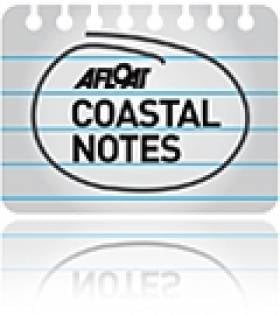Displaying items by tag: Dublin Bay Oil drilling
Minister Rejects Public Inquiry into Dublin Bay Oil Drilling
#DALKEY ISLAND PROSPECT – Environment Minister Phil Hogan has rejected a call by Tánaiste Eamon Gilmore and others for a public inquiry into Providence Resources foreshore licence application to survey and drill for oil and gas in Dublin Bay, the Irish Times reports.
Mr Hogan has said that as the application by Providence Resources for survey and drilling work 6kms off Dalkey Island was the subject of public consultation, he did not consider a public inquiry "necessary".
Tánaiste and Labour Dún Laoghaire TD Eamon Gilmore said earlier yesterday that Mr Hogan should exercise his right to hold an oral hearing under the foreshore legislation. Last month, the Green Party and a number of residents in the Dalkey area also called for an inquiry.
Speaking in Galway yesterday, Mr Gilmore acknowledged that a "couple of wells" had been drilled in Dublin Bay previously, but there were a "lot of issues" relating to the current application.
To read more about this story click HERE
Campaign to Stop Planned Oil Drill off Dalkey Island
#DALKEY ISLAND PROSPECT - An online petition organised by Protect Our Coast in protest over plans by Providence Resources to start exploratory drilling for oil and gas off Dalkey Island, in south Co. Dublin, has reached over 2,000 signatures to date, including support from overseas.
Providence Resources are seeking permission from the Department of Environment for a foreshore licence to carry out site investigation and drill testing in waters depths of 20-30m in the Kish Bank Basin, at the Dalkey Island 'Prospect'.
They propose drilling one exploratory well some 6kms offshore, though the exact location chosen for the well site is subject to results of seismic surveys. This particularly area lies closer to the coastline, as it is on the more westerly fringes of the exploratory block (33-21) zone.
The campaigners object to the proximity of the well site off Dalkey Island which is designated a Special Protection Area (SPA). The island is home to a resident herd of goats, is rich in birdlife, seals and cetaceans, notably bottlenose dolphins in neighbouring Killiney Bay, which have drawn recent media attention and aided the objectives of the campaign, see www.protectourcoast.net
In addition they oppose the drilling location given its closeness to a large urban population and the risk of an oil-spill and consequent effects to humans and the environment throughout Dublin Bay.
If granted, exploratory work is due to start this year, with Providence claiming the entire process would take up to six months, between survey and drilling operations. During part of that timeframe, up to two seismic vessels will be employed, prior to deploying a 'jack-up' rig to the well site.
Should the oil be commercially viable, the benefits of becoming self-sufficient and security of supply would be of significant economic benefit to Ireland. To date 100% of the country's oil and 95% of its gas is currently imported, and yet most of Ireland's natural resources are unexplored, according to Providence Resources.
Exploration is an expensive exercise and has no guarantee of discovery while the timeframe from discovery to production can typically take five to seven years.
"Yet," say Providence Resources, "the implications of discovering and utilising such a natural resource, and potentially becoming self-sufficient in energy terms, would be of significant economic benefit for Ireland Inc. in terms of taxation, employment, security of supply and skills development."
To read more information about Dalkey Island Prospect from Providence Resources, with maps, montages (including views from White Rock Beach) newsletters and video presentation visit www.providenceresources.com/dalkeyisland.aspx
As previously reported on Afloat.ie, the application for the foreshore license is currently on view in Dalkey and Dun Laoghaire Garda stations. The application contains maps, plans, and drawings which can be inspected, noting the public consultation process ends on Thursday 2nd February 2012.
In addition for information from the Department of Environment's website, click HERE. Those wishing to make an objection or representation of the sought license should make submissions to the Foreshore Unit of the department on close of business (also) on Thursday 2nd February 2012.
.
- Dalkey Island Prospect
- Dublin Bay News
- Providence Resources
- Protect Our Coast
- Dublin Bay Oil drilling
- Killiney Bay
- Dalkey Island
- Dalkey Island Goats
- Dalkey Dolphins
- Department of the Environment
- Foreshore License
- White Rock Beach
- Killiney Beach
- Kish Bank Basin
- Special Protection Area
- SPA
- JackUp rig
- seismic survey
- Irish economy
- Online petition
- Well Site
- Exploratory Well Kish Bank Basin
- Cetaceans
- bottlenose dolphins































































